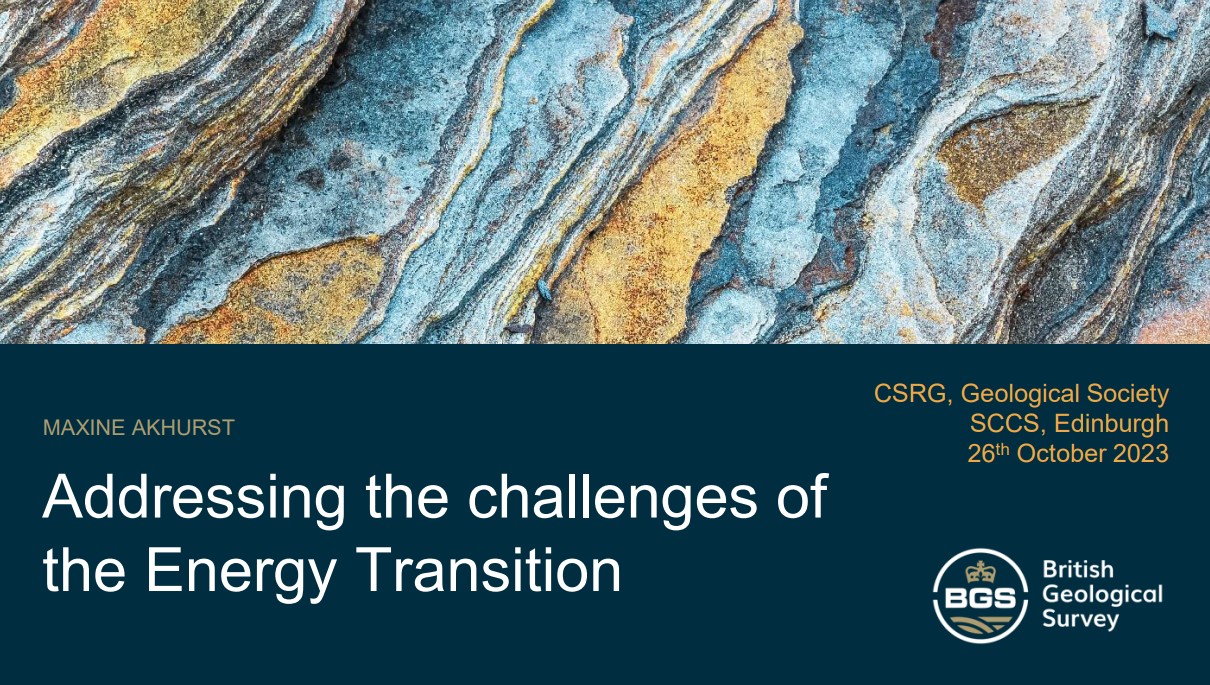On the 26th October, SCCS hosted a lecture from the Central Scotland Regional Group of The Geological Society at the Edinburgh Climate Change Institute. Over 30 people attended the talk by Dr Maxine Akhurst, Principal Geologist and Project Leader at the British Geological Survey (BGS) and member of the SCCS Directorate, entitled: ‘Addressing the challenges of the Energy Transition’.
Akhurst has been exploring UK offshore geological CO2 storage resources since 2008. She is currently leading the science development of the CO2Stored UK national CO2 storage database, and the NERC-funded project: Managing the environmental sustainability of the offshore energy transition: a solutions-based approach (MOET).
In her talk she outlined the UK’s industrial decarbonisation strategy and climate ambitions, which highlight the need to use Carbon Capture Utilisation & Storage (CCUS) technologies to achieve Net Zero. The establishment of four CCUS clusters of industry CO2 sources, including The Acorn Project in Scotland, will contribute to the country’s ambition to capture and store between 20-30 million tonnes per year of CO2 by 2030.
BGS research has shown that the UK has more than enough storage capacity to meet national need, with over 570 prospective CO2 storage units identified offshore around the UK. Akhurst and colleagues have developed a CO2‘ Storage Readiness Levels’ framework, to standardise how the readiness of prospective sites for operational storage is communicated. They have also been establishing a fit-for-purpose workflow for site selection and characterisation, as well as for predicting and monitoring containment.
In the transition from high-carbon fuels to a deeply decarbonised, renewable energy system, low- carbon hydrogen is expected to be critical for meeting the UK’s commitment to achieve Net Zero by 2050. As part of the MOET project, Akhurst and colleagues are also looking at ways to optimise the use of subsurface geological resources for temporary H2 storage to address daily and seasonal variations in demand. Given the reliance of the UK’s strategies for power generation and industrial decarbonisation on subsurface geology, assessing synergies and minimising conflicts of subsurface use will be key for their successful delivery.
After the presentation, the audience were invited to ask questions that led to further discussion about the cost of CCS, depth of CO2 and H2 storage sites, and site requirements after storage.
Dr Andrew Cavanagh, Storage Expert at SCCS, said: “It was a fun evening, well attended, and with an excellent talk by Maxine. She really is a domain expert and her talks are always up to date and on point when it comes to the detail.”


